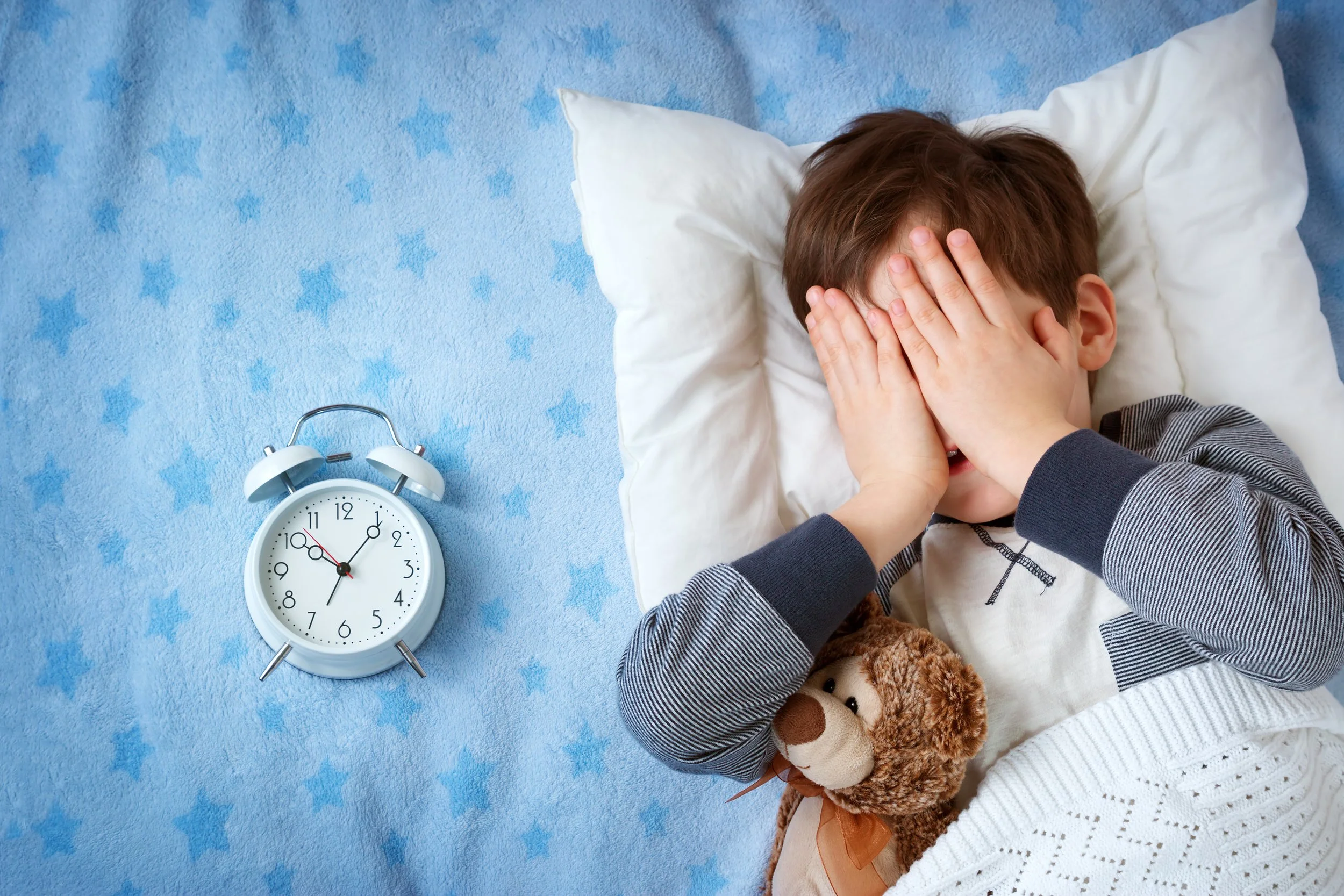

Insomnia Care for Youth
Expert telehealth solutions for children, teens & young adults struggling with sleep.
Welcome to SHIELD Psychiatry
Protecting Young Minds, Empowering Futures
Insomnia in Children, Teens & Young Adults
Restoring natural, restorative sleep
What is Insomnia?
Insomnia is more than a few bad nights — it’s a persistent pattern of trouble falling asleep, staying asleep, or waking too early with daytime effects. At SHIELD Psychiatry, we treat pediatric, adolescent, and young adult insomnia with evidence-based care that blends CBT-I, routine design, and family coaching.
Common Signs by Age
- Ages 5–12: Bedtime resistance, prolonged sleep onset, nighttime fears, co-sleeping, early waking
- Ages 13–18: Delayed sleep schedule, long sleep latency, frequent awakenings, school-day fatigue
- Ages 19–25: Irregular sleep/wake timing, difficulty initiating/maintaining sleep, cognitive fog, academic/occupational impact
Our Insomnia Treatment Approach
- Comprehensive sleep evaluation (sleep diary baseline, environment review, red-flag medical screen)
- CBT-I protocols: stimulus control, sleep-restriction titration, circadian anchoring, relapse-prevention
- Behavioral skills: wind-down routines, screen curfew, caffeine/nicotine timing, morning light activation
- Mind-body tools: breathing, PMR, guided imagery; anxiety management when present
- Caregiver/young-adult coaching and school/college collaboration as needed
At-a-Glance: Sleep Metrics We Track
Ratio of time asleep to time in bed — higher is better.
How long it takes to fall asleep after lights out.
Wake After Sleep Onset — time spent awake overnight.
Consistency of sleep/wake times — anchors circadian rhythm.
We tailor care to neurotype and context (ADHD, anxiety, autism, college transitions), balancing structure with compassion.
Insomnia FAQ
-
Insomnia is a persistent difficulty with falling asleep, staying asleep, or waking up too early despite having the opportunity for sleep. It often leads to daytime fatigue, irritability, trouble concentrating, and reduced quality of life.
-
✔ Acute Insomnia – Short-term sleep difficulties often triggered by stress, illness, or life changes
✔ Chronic Insomnia – Sleep problems lasting three or more nights per week for at least three months
✔ Onset Insomnia – Difficulty falling asleep at the beginning of the night
✔ Maintenance Insomnia – Waking up in the middle of the night and struggling to return to sleep
✔ Early-Morning Awakening Insomnia – Waking up too early and being unable to fall back asleep -
✔ Stress & Anxiety – Worry and racing thoughts can keep the brain in a state of alertness
✔ Poor Sleep Habits – Irregular sleep schedules, excessive screen time, and consuming caffeine late in the day
✔ Medical Conditions – Pain, asthma, acid reflux, and hormonal imbalances can interfere with sleep
✔ Mental Health Disorders – Depression, PTSD, and anxiety disorders are often linked to insomnia
✔ Medication & Substance Use – Stimulants, antidepressants, alcohol, and nicotine can disrupt sleep patterns -
A comprehensive sleep evaluation is conducted to assess sleep habits, underlying medical or psychological conditions, and lifestyle factors affecting sleep. At SHIELD Psychiatry, we provide telehealth-based insomnia assessments to create a personalized treatment plan tailored to your needs.
-
CBT-I is a structured, non-medication approach that helps individuals identify and change negative sleep habits, reduce nighttime anxiety, and improve sleep quality. It includes:
✔ Sleep Education – Understanding sleep cycles and how to optimize them
✔ Cognitive Restructuring – Changing negative thoughts about sleep that contribute to insomnia
✔ Sleep Restriction Therapy – Adjusting sleep schedules to increase sleep efficiency
✔ Relaxation Techniques – Deep breathing, mindfulness, and progressive muscle relaxation to calm the mind and body -
Yes! CBT-I is the most effective long-term treatment for insomnia and is recommended as the first-line treatment by sleep specialists and major health organizations. Medications can provide temporary relief, but behavioral therapy and lifestyle changes offer lasting results.
-
✔ Stick to a Consistent Sleep Schedule – Go to bed and wake up at the same time every day, even on weekends
✔ Limit Screen Time Before Bed – Reduce exposure to blue light from phones, tablets, and TVs
✔ Create a Relaxing Bedtime Routine – Engage in calming activities like reading, meditation, or gentle stretching
✔ Avoid Stimulants & Heavy Meals Before Bed – Limit caffeine, nicotine, and large meals in the evening
✔ Optimize Your Sleep Environment – Keep your bedroom cool, dark, and quiet for better sleep quality -
You can schedule an insomnia consultation or CBT-I treatment session by filling out our online form or contacting us directly. Our telehealth services make expert sleep therapy convenient and accessible from home.
Insomnia Resources & Support
Evidence-informed links to organizations, apps, and books that actually help.
🆘 Quick Help
-
988 Suicide & Crisis Lifeline (U.S.)
24/7 support if insomnia is tied to crisis, anxiety, or safety concerns.
-
SHIELD Psychiatry — Request an urgent callback
For Florida patients; ask about our CBT-I program.
🔹 Trusted Sleep Health Organizations & Websites
-
American Academy of Sleep Medicine (AASM)
Clinical information and patient education from the leading sleep society.
-
National Sleep Foundation (NSF)
Accessible sleep health articles, routines, and sleep hygiene basics.
-
CBT-I Coach (VA/Stanford)
Official companion app for Cognitive Behavioral Therapy for Insomnia.
📱 Apps for Sleep & Relaxation
-
CBT-I Coach
Sleep diary, stimulus control, sleep restriction tools.
-
Calm
Meditations, sleep stories, and relaxation soundscapes.
-
Sleep Cycle
Smart alarm & sleep tracking with trend reports.
-
Pzizz
Adaptive soundscapes and guided relaxation.
📚 Books on Sleep & Insomnia Recovery
-
Say Goodnight to Insomnia — Gregg D. Jacobs
Six-week CBT-I program with structured steps.
-
The Sleep Solution — W. Chris Winter, MD
Practical, humorous science-based guidance.
-
Why We Sleep — Matthew Walker, PhD
Deep dive into sleep science and health impacts.
Resources are educational and not a substitute for medical care. If insomnia persists, consider a formal CBT-I evaluation.


